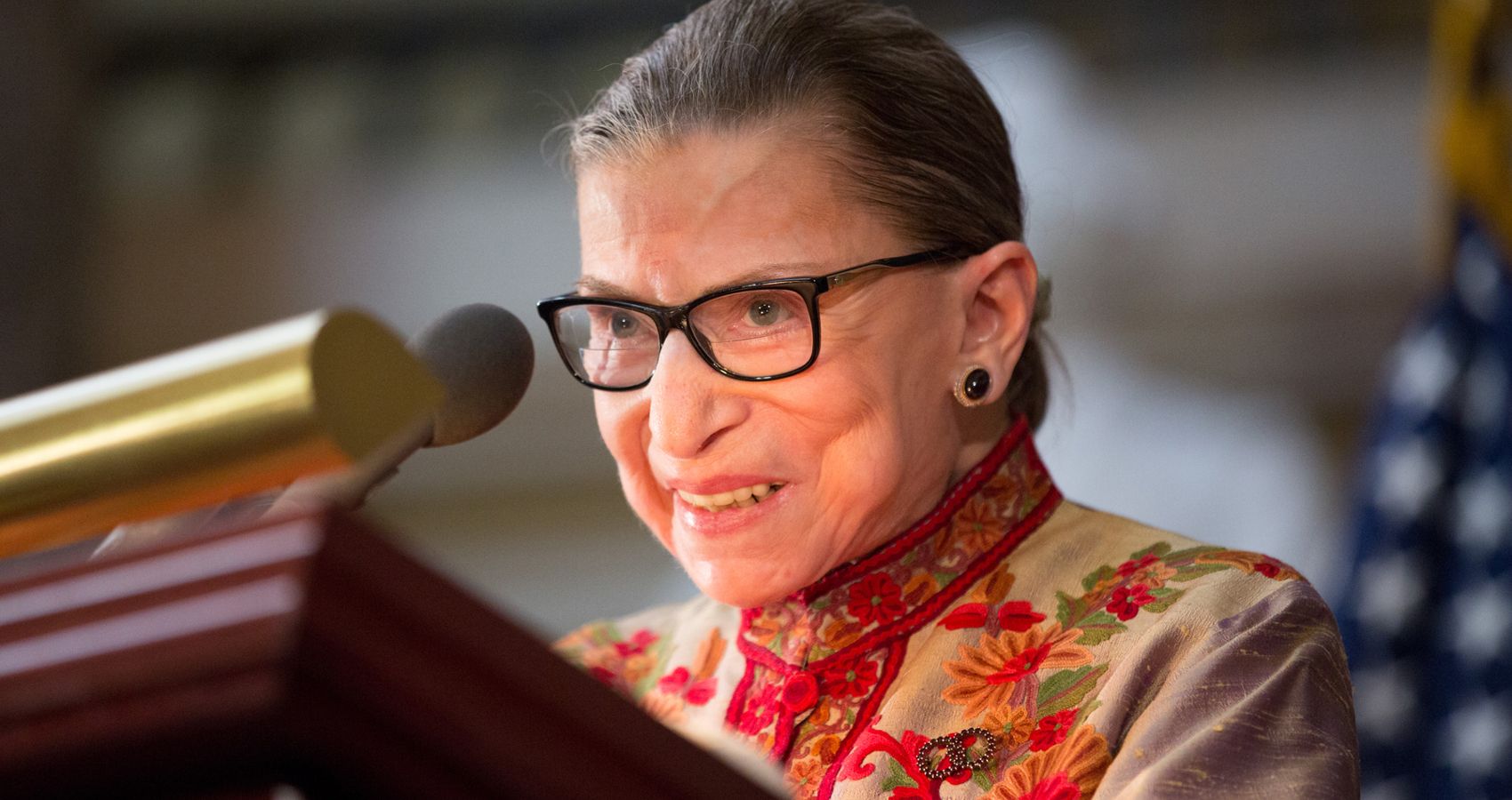Ruth Bader Ginsburg died this week leaving the country to reflect on all she did in her long career. To recognize and appreciate all of her accomplishments, we need to realize that it was against odds for Ruth Bader to become Supreme Court Justice Ruth Bader Ginsburg.
Over the last four decades, Ginsburg became a symbol of women's rights and gender equality. Ginsburg first hand knew the challenges of being a woman working in a man's world but has time and again proved her worth. Moms everywhere have Ginsburg to thank for securing us all some very basic rights.
50 years ago, in 1970, women didn't have the ability to certain things that we would scoff at today. Women couldn't apply for a credit card in her own name. It was perfectly legal for a woman to get fired for being pregnant. Even more so, it was totally legal for a woman to not even be hired for a job because she is a woman.
Women had a hard time buying property without a husband. Ginsburg fought in court for girls to play sport in school. Ruth Bader Ginsburg had a role in all of that changing, and so much more. No matter where you stand, there is no doubt Ginsburg was instrumental in ensuring that women had basic human rights.
Born in 1933, she was born and raised in the era of when women married young and didn't work outside of the home as soon as a ring was placed on their finger. Ginsburg was fully supported academically by both of her parents who wanted their daughter to have a high level of education. Her mom taught her the importance of being independent and that lesson never left her.
After graduating from high school, she attended Cornell University where she met her future husband, Martin Ginsburg. She married him young, at 21, but fought the status quo and attended law school in the early years of her marriage pursuing her education further.
She first attended Harvard Law School where was one of nine women in a class of 500. Ginsburg had given birth to her first child, Jane in 1955. She cared for her daughter who was then a toddler, went to law school, and made the Harvard Law Review.
After transferring to Columbia Law, Ginsburg finished first in her class but couldn't find a law firm to hire her because she was a woman. Ginsburg eventually took a job teaching at Rutgers University and was finally able to secure a clerkship after a former professor vouched for her.
Proving her worth, She began to climb so did the height of the glass ceiling for women as she continued to shatter it. In 1972, Ginsburg took on the American Civil Liberties Union (ACLU) Women's Rights Project. In this time, she represented the ACLU at the Supreme Court Level where she fought for the rights of every single woman in this country whether they approve of her or not.
She was the head of the ACLU’s Women’s Rights Project in the 70s, and the project supported over 300 gender discrimination cases go to trial across the country; she achieved this in only two years. Before becoming a Supreme Court Justice herself, Ginsburg personally argued six gender discrimination cases to an all-male court. She won five.
All of these cases were instrumental in the lives of women. Her first Supreme Court case was Reed v. Reed (1971). This discriminatory law in Idaho mandated that men are preferred when naming the administrator of estates. She succeeded in striking down this law. She won Frontiero v. Richardson (1973) banning pay discrimination by gender in the military. In 1974, her work led to the Equal Credit Opportunity Act, which allowed women to obtain credit cards because "discrimination on the basis of race, color, religion, national origin, sex, marital status, or age in credit transactions" was prohibited. Her victory with Weinberger v. Wiesenfeld (1975) defined that gender-based distribution of state benefits is unconstitutional; the decision was partly thanks to her win in the Frontiero case.
Her cases prompted nationwide change and laws benefitting all women. Women aren't property and as recently as the 1970s, we were seen as such. Ginsburg won not by arguing equality though. She went to court arguing that women had the same responsibilities and obligations as men therefore needing benefits. It was smart because most men of that time weren't ready to treat women as equals.
Every case she won against gender discrimination was easier to secure than the last. And for that, we thank her. Moms, we know Ginsburg may not be your cup of tea but without her, you'd still be drinking that tea from home with no credit in your name after you prepared your husband's meal first.
Ruth Bader Ginsburg lived a full life dedicated to full service. Her interest in women's rights benefitted all moms and all women in the United States. While it seems ridiculous in 2020 that giving moms rights like this was instrumental in saving women from abuse and granting independence, it was.
Ginsburg's actions changed the lives of a whole country of women and for that, we're grateful. Rest in peace RBG.
Source: BallotPedia, NPR, ACLU, The Guardian,
Editors note (September 24, 2020): this article has been updated to specify which cases of RBG led to certain achievements. The statements were previously more general than they are now.

